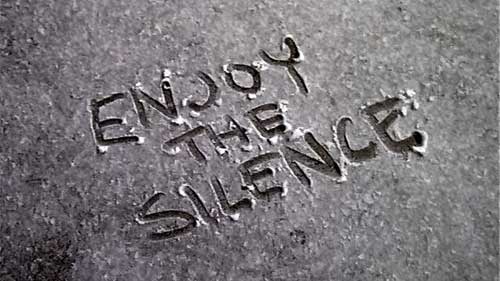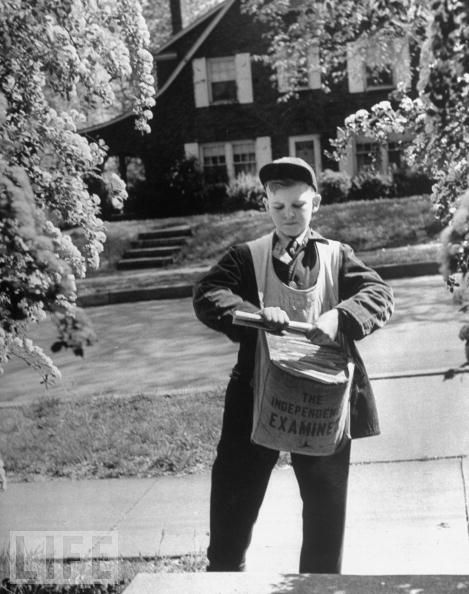Search Results for: lam

At about this time last year, I decided that I wouldn’t send out any stories or essays and that I would turn down requests for contributions to magazines or anthologies. A vow of public silence, you could call it. I wanted to spend all of 2010 doing two things only: reading and writing. So, whenever I wasn’t teaching or traveling, that’s precisely what I did. I read and I wrote. It wasn’t always easy, especially at the beginning. It was difficult to resist the temptation to write a review of a book I particularly enjoyed or an opinion piece about the latest political outrage. (Oh, sure, I had short pieces coming out here or there, but these were written before my resolution.) And now it’s been a year, and I realize this was one of the best things I could have done for myself. I feel as if I’m still under the spell of that working silence, so that I hesitate even to tell you about the novel I’ve written or the essays I’ve completed. But all in good time.
This review I wrote for The Nation is the first one I’ve written in a year. (It occurs to me that my last piece was also for them, from last November.) It’s about the Moroccan writer and critic Abdelfattah Kilito, who has recently released a collection of short fiction with New Directions, in a translation by Robyn Creswell. Here is how it opens:
On Idriss al-Azhar Street in downtown Rabat, not far from the Muhammad V Mausoleum, there is an unassuming but wonderful little coffee shop, the Café Jacaranda, where book readings are held and young artists’ paintings exhibited. There, on a warm spring afternoon three years ago, I went to hear two of Morocco’s foremost intellectuals discuss the feminine and masculine in classical Arabic literature. One was Fatema Mernissi, the world-renowned feminist, sociologist, and memoirist, the author of some twenty books on feminism and Islam, and co-winner, along with Susan Sontag, of the Prince of Asturias Award. Her arrival at the café was met with murmurs of awe. A throng of admirers immediately surrounded her, so that the only part of her that remained visible from the other end of the lobby was her fiery red hair.
The arrival of the other panelist, Abdelfattah Kilito, went unnoticed until it was time for the event to start. Where Mernissi was gregarious and funny, Kilito was reserved and bookish. Once the panel discussion started, however, the audience got to hear Kilito speak knowledgeably about Maqamat al-Hariri, the classical work of rhymed prose that until the end of the nineteenth century was one of the most widely read books of Arabic literature. Kilito spoke about the use of the sun and the moon as symbols for the masculine and feminine, the popularity of the Maqamat, the miniatures that the artist al-Wasiti created to illustrate the manuscript, the reasons why these miniatures are nowadays more widely disseminated than the text itself—and much else besides.
Among Moroccan writers, Kilito has always cut an unusual figure. He is equally at home in French and Arabic, in a country where language lines are drawn early and barriers are rarely crossed. He is not particularly known for his politics, in a society that routinely expects—and occasionally even demands—of its writers that they be politically engaged. His is not the name you will see mixed up in the kind of controversy that attracts the international press. But one would be hard-pressed to find a Moroccan writer who is more respected by his peers and more appreciated by his readers than Abdelfattah Kilito.
The full piece is available to subscribers only. (You can subscribe to the magazine here, for as little as $18.)
(Image credit: Wickednox)

Perhaps the most consistent irony about our mass media is that it’s curated, edited, customized, or otherwise filtered to such a degree that it is not mass at all. We hear only the news that is meant for us, and we scarcely stop to think about the news we’re not hearing. The recent mid-term elections seemed to me to be basically about different news being created for the benefit of different communities. It’s tempting to think of this as a thoroughly modern phenomenon, a by-product of the speed with which news circulates these days. But my recent foray into old travelogues and historical fiction has really shown me that the way we receive and interpret the news hasn’t changed very much. Take Beloved, for instance. (I’ll be using this book in one of my classes next quarter, which is why it came to mind.) Late in the novel, Toni Morrison writes about how two different racial communities in nineteenth-century Cincinnati perceive and interpret a very specific piece of news. The scene takes place about two-thirds of the way into the novel, when Paul D., a former slave, finds out a secret about Sethe, the woman he loves. Stamp Paid is the man who brings the press clipping (with this secret) to Paul:
Paul D. slid the clipping out from under Stamp’s palm. The print meant nothing to him so he didn’t even glance at it. He simply looked at the face, shaking his head no. No. At the mouth, you see. An no at whatever it was those black scratches said, and not to whatever it was Stamp Paid wanted him to know. Because there was no way in hell a black face could appear in a newspaper if the story was about something anybody wanted to hear. A whip of fear broke through the heart chambers as soon as you saw a Negro’s face in a paper, since the face was not there because the person had a healthy baby, or outran a street mob. Nor was it there because the person had been killed, or maimed or caught or burned or jailed or whipped or evicted or stomped or raped or cheated, since that could hardly qualify as news in a newspaper. It would have to be something out of the ordinary—something whitepeople would find interesting, truly different, worth a few minutes of teeth sucking if not gasps. And it must have been hard to find news about Negroes worth the breath catch of a white citizen in Cincinnati.
There is some back-and-forth as Stamp tries to convince Paul D. to look at the article about Sethe in the paper, even as he’s trying to justify for himself why no one warned Sethe that a slave catcher was headed toward her house.
Stamp Paid looked at him. He was going to tell him about how restless Baby Suggs was that morning, how she had a listening way about her; how she kept looking down past the corn to the stream so much he looked too. In between ax swings, he watched where Baby was watching. Which is why they both missed it: they were looking the wrong way—toward water—and all the while it was coming down the road. Four. Riding close together, bunched-up like and righteous. He was going to tell him that, because he thought it was important: why he and Baby Suggs both missed it. And about the party too, because that explained why nobody ran on ahead; why nobody sent a fleet-footed son to cut ‘cross a field soon as they saw the four hourses in town hitched for watering while the riders asked questions. Not Ella, not John, not anybody ran down or to Bluestone Road, to say some new whitefolks with the Look just rode in. The righteous Look every Negro learned to recognize along with his ma’am’s tit. Like a flag hoisted, this righteousness, telegraphed and announced the faggot, the whip, the fist, the lie, long before it went public.
Some pay attention only to what’s in the newspaper, to declarations from police officials and accompanying pictures; others have to keep their ears trained on the noises coming from the road, and then ‘telegraph’ them elsewhere. The juxtaposition is so skillfully weaved into the scene that I didn’t notice it the first time I read it. (Nor did I realize that the character of Sethe was based on a real-life runaway slave, who attracted the attention of Ohio newspapers because of what she had done. One of the reasons I really enjoyed re-reading the book was because of all the things I’m noticing now that I didn’t notice years ago.)
Photo credit: Alfred Eisenstaedt/Time & Life Pictures/Getty Images

In late 2008, when I was preparing for the publication of my second book, Secret Son, I received from my publisher what seemed like a longer-than-usual author questionnaire. (For those of you who don’t know: the author questionnaire is a form that invites you to list magazine editors, book reviewers, booksellers, and pretty much anyone you think will have the slightest interest in your book.) Dutifully, I began to fill it out. Then I noticed a section on social media, which hadn’t been part of the questionnaire when I published my first book, Hope and Other Dangerous Pursuits.
I had never had any interest in Facebook, but in the face of questionnaires I am nothing if not thorough. I joined the damn site. Within days, I realized that everyone I knew—family, friends, writers, acquaintances, neighbors—were on it. It really felt as if I were the last person in North America to give in to it. I was delighted to find so many familiar names, and happily accepted any and all friend requests. Before long, however, my friend list ballooned to several thousand. And I loved it. I loved seeing my family’s baby announcements or travel pictures; I loved reconnecting with people I had gone to college with; I loved finding out what my friends were reading and recommending; I loved reading articles my colleagues posted.
But the way Facebook works, everyone on your list has the same claim on your attention. So if I made a joke that had a ten-year-history in my family, someone whom I had never met, and who could arguably be the friend of an old acquaintance of a neighbor of a cousin, made a comment about not getting it. It became necessary to explain the joke, which took away some of its humor. Or if I posted a link to an article, along with a line that I thought was clearly sarcastic, someone took it literally. I had to temper the sarcasm, which took away its bite. If I was busy and did not get a chance to respond to an incendiary comment, someone was bound to take it as an endorsement. When someone sent me fifteen invitations to one event in the space of a week, I was forced to politely decline fifteen times. And when someone sent me a marriage proposal, I said, “Enough.”
I decided to remove anyone from my page whom I didn’t personally know. Sounds pretty sensible, right? Boy, was I wrong. It turns out that if you massively remove people from your list, these people don’t necessarily like it. And that you acquire a reputation as an anti-social person. (Which, okay, fair enough, maybe I am. That’s why I took such a perverse interest in David Fincher’s film. It was amusing to see a socially inept person create a site like that.) The truth is, I like people. But, call me crazy, I just want to know them, too. So now I have two personalities on Facebook: Private-me and Public-me. Public-me will tell you about her upcoming book, or about this cool article she just read, or even about this post, while Private-me sits in the corner, watching quietly, the way she always does.
Photo: Columbia Tristar Marketing

This is what my windshield looked like when I left yoga class yesterday morning. We’ve had a very cool summer in Santa Monica—temperatures rarely rose above 70 degrees—and now it looks like winter is here in earnest. I don’t mind the cold weather, though. It provides fewer distractions from my book. Exactly what I need at the moment. The title of this post is from one of La Fontaine’s fables, which I, like every other child in the Francophone world, had to memorize: “La Cigale et la Fourmi” or “The Cricket and the Ant.” (In Aesop’s version, it’s called “The Ant and the Cricket.) For a few weeks now, I’ve been worrying that perhaps I had misspent my summer, that I hadn’t written enough. But I’m happy to say that I was wrong, that I needn’t have worried. I turned out to be the Ant, not the Cricket.



